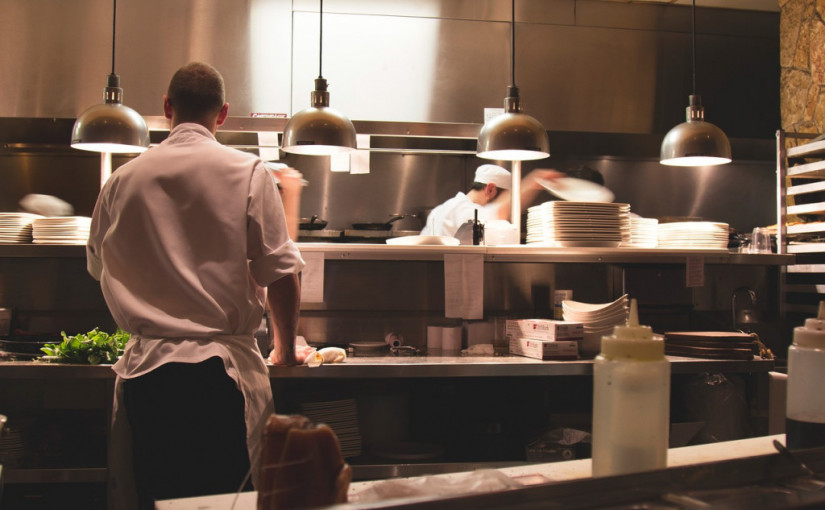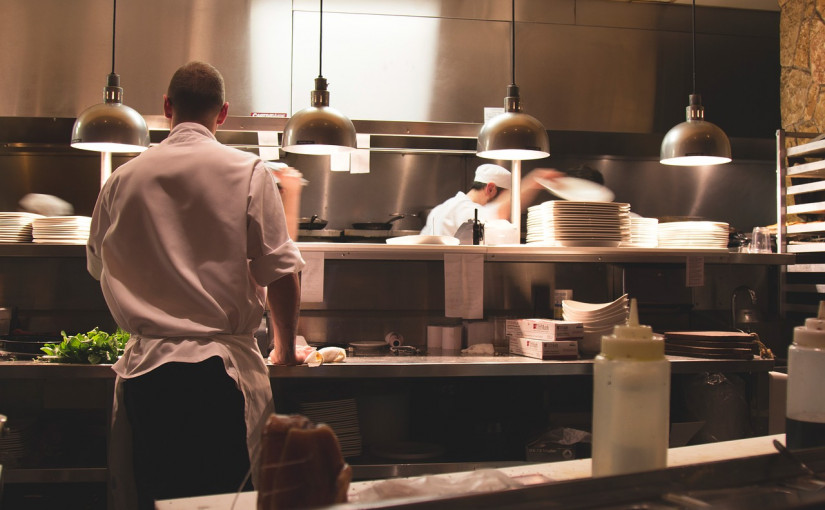In the past three years, food delivery services have become one of the fastest-growing sectors. Many SME’s success stories based on the food business pioneer, supported by a delivery service, one indicator. Grab and Gojek became the two companies that dominated the industry. Now the competition continues. Both are in a competition to bring the concept of cloud kitchen or kitchen together to accelerate the food delivery business.
Cloud Kitchen, also known as a ghost kitchen or virtual kitchen, is basically a shared kitchen concept that can combine several brands in one place or kitchen. This concept, if viewed from the point of view of the delivery order service, will be effective to improve user experience because users can order the desired food from the nearest shared kitchen.
As in the food business, the concept of a shared kitchen can make it easier for them to be present in more places than opening a new branch that is costly.
Research says that the global cloud kitchen market is to reach $ 2.63 billion by 2026. The greatest potential for growth occurs in countries that have a growing food delivery service market.
In India, the cloud kitchen concept works quite well and is accepted by the public. The potential for growth is predicted to reach five times in the next five years. This is also driven by pandemic situations that force restaurants to serve only takeaway orders. Cloud kitchen allows many aspects that can ultimately be suppressed, one of which is infrastructure costs.
“People are currently ordering online, it benefits us for our entire cost structure is built on that. There is no shop in front of the restaurant. Therefore, from the perspective of capital and operating expenses, we are in a position to maintain and grow,” the CEO of the Indian Rebel Food Business Unit Raghav Joshi explained.
While in China, food delivery services also reached $62 billion in 2018. This is predicted to double by the year 2021. One that adds up to the message service between eating in China is the presence of Panda Selected. The Beijing-based startup is a cloud kitchen service provider with 120 locations in various major cities, such as Beijing and Shenzhen.
Cloud kitchen in Indonesia
Gojek brought Rebel Food expertise from India to Indonesia to develop this cloud kitchen concept. Gojek calls it the GoFood Joint Kitchen. There is also Grab (GrabKitchen) and Hangry which carry the concept of one kitchen for many brands.
“To date, GoFood Dapur Bersama, which was launched in October 2019, has 27 locations and expanding across Greater Jakarta, Bandung, and Medan. 80 percent of business partners who benefit from Dapur Bersama are GoFood SME partners that also part of the GoFood ecosystem, for example Duck Dower, Martabak Pizza Orins Express, Bakso Jawir, etc. Next, referring to GoFood data in May 2020, 70% of transactions were recorded by MSMEs after joining the GoFood Joint Kitchen, “said VP Corporate Affairs Food Ecosystem Gojek Rosel Lavina.
Grab also presents GrabKitchen in many cities. As of last February they already had 40 cloud kitchen kitchens spread across several cities in Indonesia. GrabFood also has a GrabKitchen “All in One” feature that can make it easier for customers to order many dishes from several restaurants at once.
A similar concept is also applied by Hangry, a multi-brand restaurant developed with a digital approach. Although Hangry does not claim that they carry the concept of a cloud kitchen, the concept of one place with many brands is very close to the concept of a shared kitchen. The startup, which is headed by Abraham Viktor, utilizes a delivery service from Gojek and Grab and other technologies that support the company’s performance.
Last June Hangry successfully pocketed Rp42.7 billion in initial funding from Sequoia India and Alpha JWC Ventures. Currently, Hangry has dozens of outlets throughout Jabodetabek.
“During this pandemic, we still grow. Maybe because many people have not started eating out. From January to March the growth is 100%, while from March to June 30% per month,” Viktor explained then.
Gojek, Grab, and Hangry launched an expansion this year to encourage the presence of a more massive shared kitchen. Gojek decided to stop the GoFood Festival category and switch to the concept of a shared kitchen to continue with the delivery model.
“Gradually, through data and market demand, we are proceeding to develop GoFood Joint Kitchens in other cities in Indonesia as one of the comprehensive solutions to support the needs of culinary MSME businesses,” Rosel said.
The concern
As any other business model, the cloud kitchen concept raises several questions, both in terms of customers and business owners. For example the issue of cleanliness and quality.
There is also concern that expansion only benefits well-known brands, which makes it difficult for new businesses to grow and compete. At least those two are the concerns of the joint kitchen business that runs in several countries.
To date, the concept of shared kitchens is still an attractive option in Indonesia to encourage the expansion of restaurant chains that have proven to have a lot of interest. Time will prove whether there will be a new local restaurant network that is able to be national along with the growth of the cloud kitchen business in this country.
–
Original article is in Indonesian, translated by Kristin Siagian

